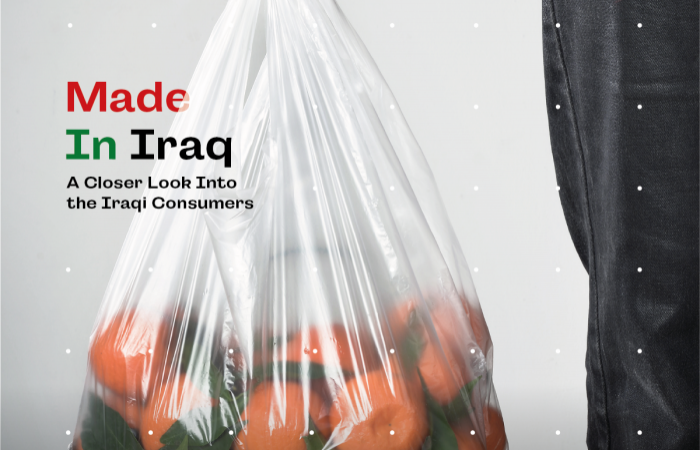This research endeavor provides an overview of the Iraqi consumer’s behavior. Kapita’s research team created a questionnaire, distributed it to a wide audience online, and analyzed the responses accordingly. A better understanding of the Iraqi consumer allows for a customized market, targeting the specific needs and requests of the typical Iraqi consumer. Research in this sector has been much neglected unfortunately for the past decade and a half that is due to the overall negligence of the industrial and manufacturing sector and complete focus on the petroleum industry. DOWNLOAD Short Version English DOWNLOAD Full Version RESEARCH This publication is part of Business LANDSCAPE series which a series of research publication aims to highlight the current situation of Iraq’s economy and private sector through publishing researches and data and make it freely available for the benefit of investors, and the local and international community This study is published in partnership with GIZ | 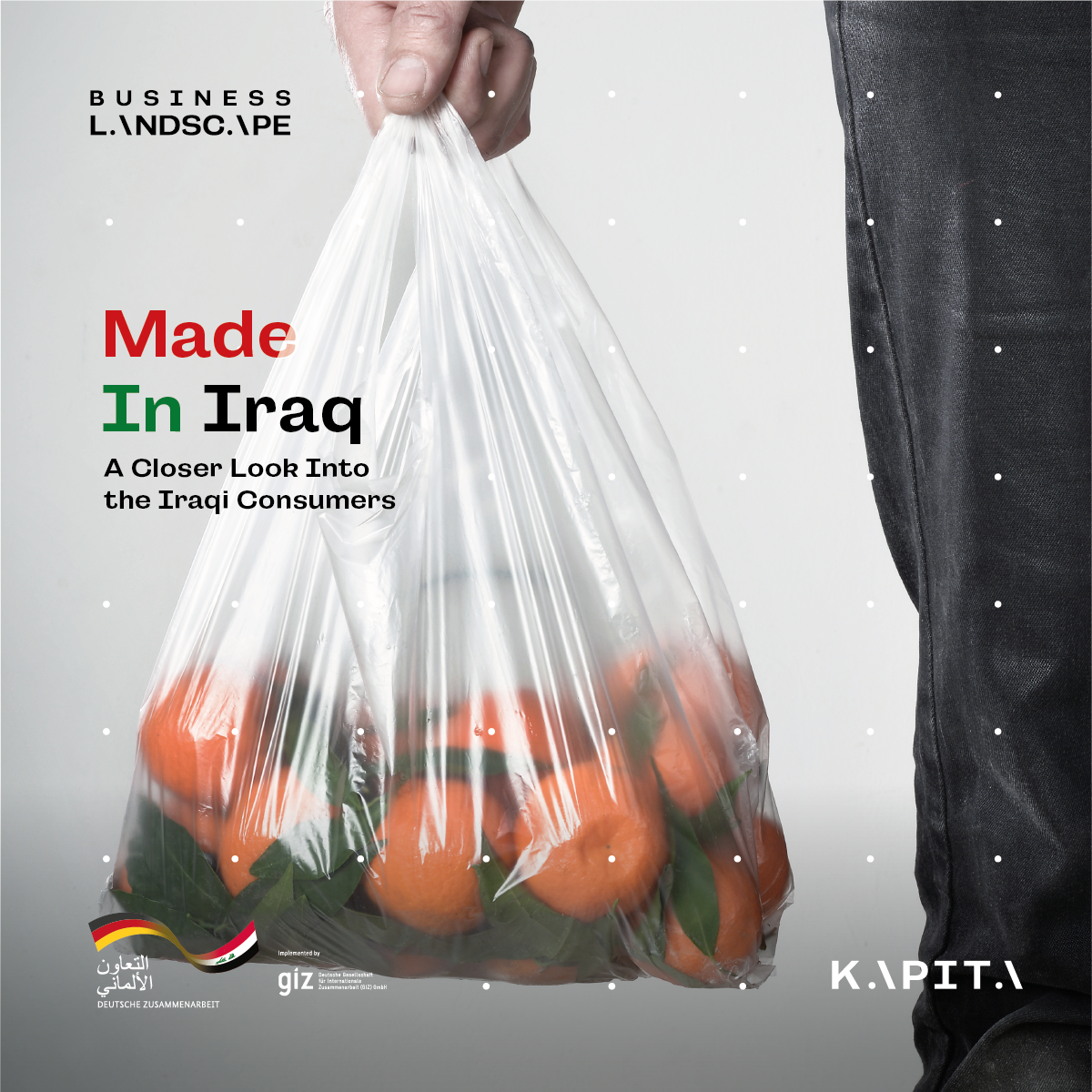 |
Research on consumer behavior and its relation to ethnocentrism dates back decades, citing great attention to the matter of the country of production. In this research, we studied the factors that the Iraqi consumer finds motivating and deterring when buying Iraqi and foreign products. The “Made in Iraq” campaign, which started during the October uprising of 2019, had an effect on the Iraqi society that we tried to measure here as well.
A convenient sample of 2406 people was collected through the questionnaire. The questionnaire started by asking the respondents if they changed their consumption habits after the “Made in Iraq” campaign. The answers were positive as is shown below.
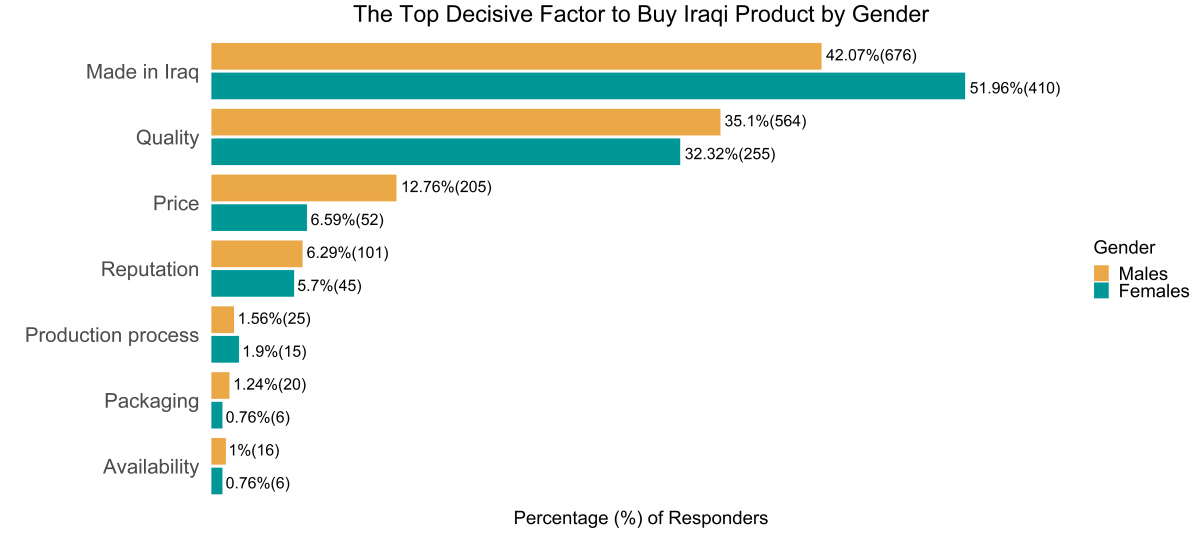
Our sample was later asked to define which factors were most important in motivating an Iraqi consumer to buy non-Iraqi products, then the same question was asked again for Iraqi products. Product quality, price, and country of production were the most important factors to motivate an Iraqi consumer to purchase a foreign product. However, for Iraqi products, the “Made in Iraq” fact was voted the top decisive factor that motivates Iraqis to buy local products.
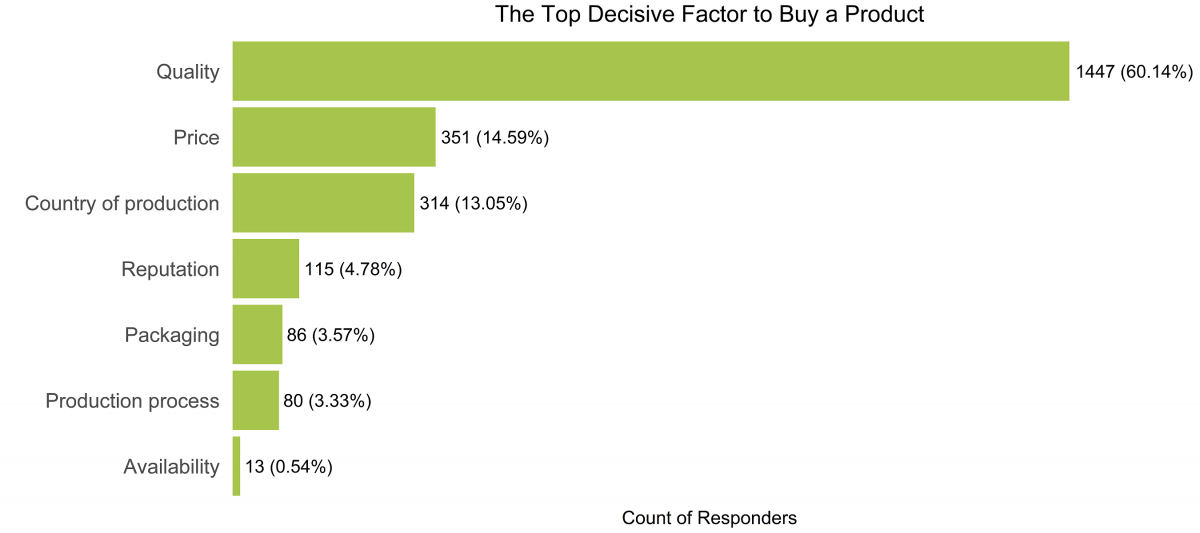
The question was followed by asking our sample to define which factors were most important in deterring an Iraqi consumer from buying non-Iraqi products, then the same question was asked again for Iraqi products. Product quality, packaging, and reputation were the most important factors to deter an Iraqi consumer from purchasing a foreign product.
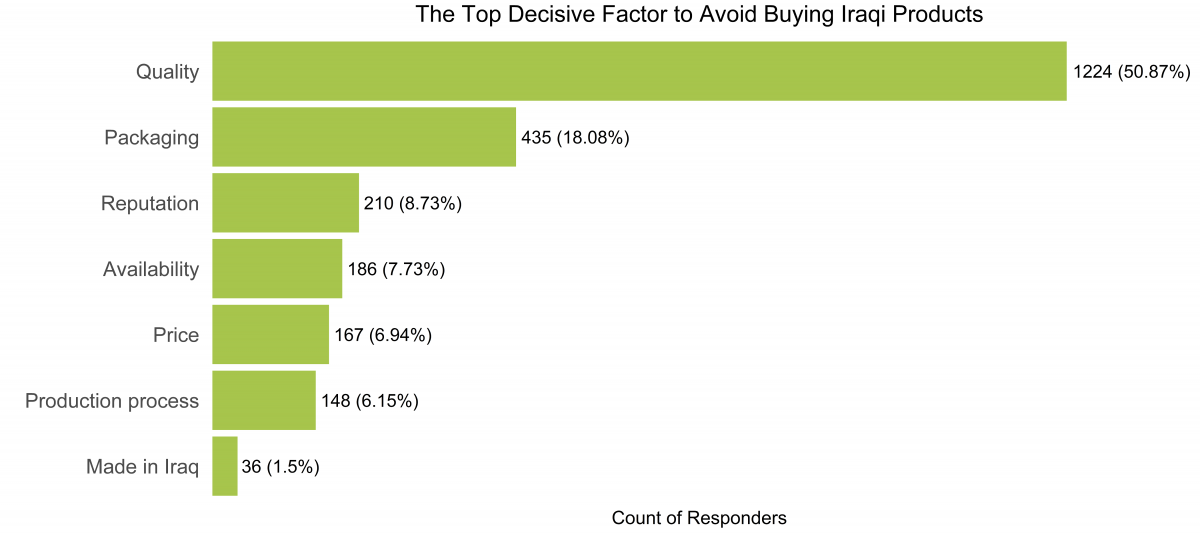
One distinction between consumers’ behavior towards Iraqi products versus imported products was found to be the product packaging as an avoidance factor in purchasing products. Iraqi consumers chose the product packaging factor to avoid buying Iraqi products more than they chose it for imported products. When asked about whether product packaging was the most important factor to avoid buying imported products, 11.93% said that it was, while 18.08% of the same people said the packaging was the most important factor to avoid buying Iraqi products. Thus, Iraqi producers should take into consideration the packaging process more carefully.
At the same time, people found that the low availability of products and bad reputations is more important in Iraqi products compared to products from other countries. It is also worth mentioning that the high price of Iraqi products was the main concern for only 6.94% of the sample while it was 11.6% for products from other countries. This shows that people are actually willing to pay more for Iraqi products if they have good quality, good packaging, and a good reputation.
Subgroup analyses based on gender, location of residence, education level, and age were later conducted and statistical tests were performed to check for any correlations between the subgroups. An interesting noted remark was the subanalysis of decisive factors to buy products by gender.
The females respondents showed greater enthusiasm for supporting Iraqi products than males as 51% voted for having a product made in Iraq as the most important factor to buy the product. Males did not fall very far behind though, as 42% still chose the country of production as their first option. Quality came in second place, with males (35%) caring more for the product quality than females (32%). Both genders considered price in third place, however, males (12.7%) were more likely to consider it as a decisive factor than females (6.5%). This could mean that the “Made in Iraq” campaign affected women more than it did males, as further analytical tests showed a significant difference in the relationship between the two genders when it came to the country of production factor.
This research aims to shed a light upon the importance of studying the Iraqi consumer behavior that is worthy of the attention of Iraqi manufacturers, investors, and stakeholders. Key points to think about which will allow the Iraqi products to compete with the imported ones are good quality products, products’ packaging, and products’ reputation and availability.
